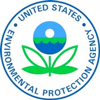| Presented in Partnership with: | |||
 |
 |
 |
 |
1994
United States Environmental Protection Agency
Washington, D.C. 20460
Office of Solid Waste and Emergency Response
May 19, 1994
Mr. Charles P. Lettow
Cleary, Gottlieb, Steen & Hamilton
1752 N Street, N.W.
Washington, D.C. 20036-2806
Dear Mr. Lettow:
Thank you for your letter of December 10, 1993, requesting clarification of the Resource Conservation and Recovery Act (RCRA) hazardous waste regulations as they apply to certain secondary materials. Specifically, you asked whether hydrochloric acid (HCl) generated by your client in the production of a primary product would be regulated as a RCRA hazardous waste if sold for use as a pickling liquor in the steel industry and/or as a fracturing agent in oil and gas wells.
In response to your question, the following provides general guidance regarding which federal regulations may apply in the situation you describe, clarifies the intent and meaning of various terms used in the regulations, and provides some of the pertinent factors to consider in determining the regulatory status of the HCl. However, regulatory determinations such as the one you seek (i.e., specific to your clients process or products) must be made on a case-by-case basis by the appropriate state regulatory agency or EPA regional office.
According to your letter, the HCl that your client wishes to sell is produced by an air pollution control device which treats gases generated during the manufacturing process. Significantly, you also note that, at present, most commercially available HCl is produced as a secondary material during the manufacture of another chemical product. In your letter, you repeatedly refer to hydrochloric acid generated in this manner as a "by-product" of the production process. However, based on the information you have provided, the HCl produced by your client may be considered a co-product rather than a by-product of the production process for purposes of regulation under RCRA.
This distinction between by-product and co-product is important for regulatory purposes in some cases and may be applicable to your situation. If the HCl is determined to be a co-product, it is not considered to be a secondary material and thus not subject to regulation as a RCRA solid (or hazardous) waste. By-products, on the other hand, are secondary materials subject to RCRA regulation as solid wastes unless, as you note, they are recycled by being "(i) used or reused as ingredients in an industrial process to make a product, provided the materials are not being reclaimed; (ii) used or reused as effective chemical substitutes for commercial products; or (iii) returned to the original process from which they are generated without first being reclaimed" 40 CFR Section 261.2(e)(1). Also, by-products that are hazardous only because they exhibit a hazardous characteristic are not solid wastes when reclaimed (40 CFR Section 261.2(c)(3)). In your case, as previously noted, it is not obvious that the HCl produced by your client is a by-product and not a co product of the production process.
A by-product is defined in RCRA as "a material that is not one of the primary products of a production process and is not solely or separately produced by the production process" (40 CFR Section 261.1(c)(3)). The preamble to the 1985 Definition of Solid Waste final rule provides clarification of the Environmental Protection Agencys (EPAs) intent regarding what constitutes a by-product. It explains that EPA means to include as by products, "materials, generally of a residual character, that are not produced intentionally or separately, and that are unfit for end use without substantial processing" (50 FR 625, January 4, 1985).
While there is not an explicit regulatory definition of the term "co-product," the preamble to the 1985 rule also provides some clarification as to what would be considered a co-product, as distinct from a by-product, under RCRA. The preamble describes co-products as, "materials produced intentionally, and which in their existing state are ordinarily used as commodities in trade by the general public" (50 FR 625, January 4, 1985).
Based on these definitions, several factors must be considered in deciding whether a material is a legitimate product (i.e., co-product) or a by-product under RCRA. They include, for example, whether the material constitutes a separate production stream, whether it is fit for end use essentially as is or must undergo substantial additional processing prior to use, whether intentionally produced for sale to the public, whether a legitimate market exists for the material, etc.
Again, given the information provided in your letter, the HCl manufactured by your client may meet the definition of a co-product under these criteria, and as such, would be excluded from RCRA jurisdiction. It is important to reiterate, however, that a specific determination regarding the regulatory status of the material in question must be made the regulating agency.
If the application of the criteria should lead to a by-product determination, however, the aforementioned recycling exclusions (40 CFR Section 261.2(e)(i) and (ii) becomes relevant as explained below. As previously noted, specific determinations such as whether a particular by-product is excluded from regulation as a RCRA solid waste because it is recycled as either a product ingredient or an effective substitute for a commercial product must be made on a case-specific basis by the regulating agency.
Use of HCl By-Product as Pickling Liquor
As you note, secondary materials that are directly used (i.e., without prior reclamation) as substitutes for commercial products are excluded from regulation under RCRA (40 CFR Section 261.2(e)(1)(ii). Insofar as the HCl by-product produced by your client would be used directly as a legitimate substitute for commercially produced HCl product, it would be excluded from regulation as a solid waste under RCRA. Based on the information you have provided, use of the HCl by-product as a pickling liquor may meet this exclusion. To obtain a definitive determination, however, you should submit your request to the appropriate State or Regional authority.
Use of HCl By-Product as a Fracturing Agent
Assuming that the HCl produced by your client would be a by-product under RCRA, you raised the question of whether use of HCl by-product as a fracturing agent in oil and gas well would be regulated as use constituting disposal or land application under Section 261.2(c)(1). As described in your letter, HCl is injected through a well bore pipe into the earths stratum where it reacts with limestone formations. This activity, which is essentially the same as deep-well injection, is clearly a form of land disposal and as such would be subject to RCRA regulation. (You should also note that the exclusion for an effective substitute for a commercial product found at Section 261.2(e)(1)(ii) is not available for materials that are used in a manner constituting disposal. (40 CFR Section 261.2(e)(2)(i).) Therefore, if the HCl produced by your client is determined to be a by-product, it would be subject to RCRA regulation when used as a fracturing agent.
I hope that this addresses your concerns. If you have other general questions regarding the regulation of secondary materials under RCRA, please contact Mitch Kidwell at (202) 260-8551 or Becky Daiss at (202) 260-8718. For questions regarding the application of RCRA to a specific product or process, you should contact the appropriate State regulatory agency or EPA Regional office.
Sincerely yours,
Michael Shapiro, Director Office of Solid Waste _
 |
 |
 |
 |
 |
| Home | Subscribe | Regulations | Compliance Assistance | News | Resources | Resource Locators | Directories | Online Training | About | Search | NASF.org |
The information contained in this site is provided for your review and convenience. It is not intended to provide legal advice with respect to any federal, state, or local regulation.
You should consult with legal counsel and appropriate authorities before interpreting any regulations or undertaking any specific course of action.
Please note that many of the regulatory discussions on STERC refer to federal regulations. In many cases, states or local governments have promulgated relevant rules and standards
that are different and/or more stringent than the federal regulations. Therefore, to assure full compliance, you should investigate and comply with all applicable federal, state and local regulations.